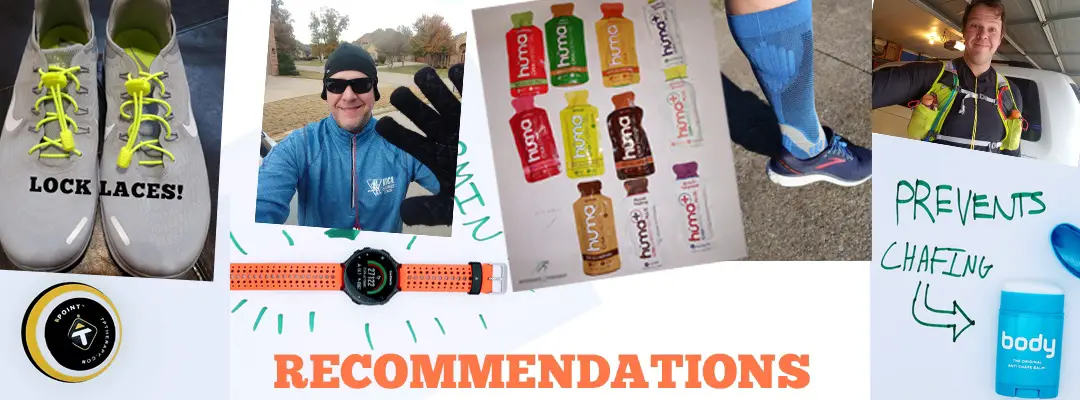How long does it take to walk a marathon?
Is walking a marathon harder than running?
While walking a marathon will normally take a longer time to finish than running a marathon. It is much easier on your body if you walk a marathon versus running a marathon. Many runners resort to a walk/run (more walking) or run/walk (more running) strategy for a marathon race.
For a detailed dive into the run/walk method of running, check out this post:
How to use the Run/Walk Method – A Complete Guide
Is it OK to walk a marathon?
It is perfectly fine to walk a marathon. However (A BIG HOWEVER), you need to check with each individual race to determine what the rules for cutoff times are. Some races are strictly enforced and you must board a sweeper car if you fall behind the slowest pace/time. Some races all you all the time you need to finish the race, however, these are far and few between. If you plan on walking a marathon, look for a marathon that stays open for at least 8 hours.
Related: What Happens To Your Body When You Walk More?
Is It OK to walk a marathon without training?
Yes, you can walk a marathon without training granted that you are physically fit to walk that far and you have no underlying injuries or medical conditions that would prevent you from doing so. If you’ve never walked long distances before, it is best to get a nod of approval from a licensed medical professional.
Can you walk a marathon in 6 hours?
While it is possible to walk a marathon in 6 hours, I believe that only a small percentage of walkers can walk a marathon in 6 hours. The rationale behind my reasoning is that some of the slowest runners can jog at a pace of 13 minutes/mile. If you look at the table below at the 13-minutes per mile finishing times, you’ll see that a slow jogger will finish a marathon running at 13 minutes/mile in 5:40:36 (5 hours 40 minutes 36 seconds).
If you run a 13-minute mile you will finish a:
- 5K (3.1 miles) in 0:40:18 (40 minutes 18 seconds)
- 10K (6.2 miles) in 1:20:36 (1 hour 20 minutes 36 seconds)
- 15K (9.3 miles) in 2:00:54 (2 hours 0 minutes 54 seconds)
- 21.1K (13.1 miles – Half Marathon) in 2:50:18 (2 hours 50 minutes 18 seconds)
- 42.2K (26.2 miles – Marathon) in 5:40:36 (5 hours 40 minutes 36 seconds)
- 50K (30.1 miles – Ultra Marathon) in 6:43:53 (6 hours 43 minutes 53 seconds)
For more information about the 13-minute mile click here.
What is the average marathon time for a beginner runner?
The average time for a first-time marathoner is between 4 hours 30 minutes and 6 hours.
Do I need fuel If I’m walking a marathon?
Whether you’re a seasoned walker, runner, or brand new exerciser, deciding to walk a marathon is a big undertaking. More and more new walkers and runners are jumping into the sport of walking in order to live a more healthy lifestyle. One of the most common questions asked by walkers is, “Can You walk a marathon in 8 hours?” Let’s explore this question in depth.
Since you will more likely be out on the marathon racecourse for a longer period of time when compared to runners, you will need to pack some type of snack for the race. While you don’t necessarily need energy gels, you could get away with simply bringing along a couple of energy bars and maybe some pretzels or chips. At a minimum, you should probably aim to consume about 30 grams of carbohydrates an hour while walking your marathon race.
For a quick reference chart on the marathon, fueling check out my fueling guide for marathons here – the ultimate marathon fueling guide.
If you’re interested in eating energy gels, my top two recommended brands are Huma and GU. For a complete review of energy gels, I personally tested click here – Energy Gel Review.
Can you walk a marathon in 8 hours?
Most walkers should be able to walk a marathon in 8 hours with proper training. In order to complete a marathon in 8 hours, you must keep an average pace of 18:18 minutes a mile (11:22 minutes a kilometer). Two factors to determine whether or not you will be able to walk a marathon in eight hours is your current fitness level and your weekly volume of walking.
How do I know how fast 18:18 minutes/mile (11:22 km/mile) is?
The easiest way to determine how fast 18:18 (11:22) is by attempting to walk 1 mile (1 kilometer) within those time constraints. if you don’t have a GPS running/tracking app you can use your phone to determine your pace. Most people have a smartphone with apps installed to track their pace but in case you don’t here is a quick hack to figure out if you can walk 18:18 mile (11:22 kilometers).
- Find a walking location where you know how far one mile is. I live next to a park where the trail around the park is exactly 0.5 miles. Twice around is one mile. A track is another great place to run this assessment.
- Set a countdown timer on your phone for 18:18 if you’re walking 1 mile or 11:22 if you’re walking 1 kilometer.
- Begin your walk and see how far you get around before the timer runs out.
- If you fall short of the distance then your pace is greater and you wouldn’t be able to finish the race within the timeframe of 8 hours.
- If you go past the distance of 1 mile/1 km then you should be able to finish the race within a time frame of 8 hours.
- Even if you can walk 1 mile at or below 18:18 minutes a mile (11:22 minutes a kilometer) you still need to look at your current total volume of miles walked per week
Quick link to pacing/interval tables below
Do I really need to train for weeks to be able to walk a marathon?
The short answer is no, however, you need to consider two things before you attempt to walk a marathon without training:
- Are you in good shape, not overweight, no medical issues?
- Do you already walk a lot of miles/kilometers during the week?
Even if your weekly walking volume is a low amount of miles/kilometers (let’s say a total of 10 training miles), you can still walk a marathon with little or no training. However, you might have some really sore legs after it’s all said and done, or worse, you might not finish the marathon race.
Assess Your Physical Fitness – Trial and Error
Before you start doing any type of training you need to assess how long it takes you to walk 3 miles at a moderate walking pace. 20 minutes a mile / 12:25 minutes a kilometer is an extremely easy walking pace. If you walk your 3 miles and find that there is no way you can walk at 20 minutes a mile / 12:25 minutes a kilometer you need to put on the brakes and take a couple of steps back. 20 minutes a mile / 12:25 minutes a kilometer is not even the bare minimum average pace to keep for an eight-hour marathon – 18:18 minutes a mile / 11:22 minutes a kilometer is.
If you’re having trouble keeping a 20 minutes a mile / 12:25 minutes a kilometer pace, you need to do one of three things:
- Find a marathon race that has an 8-9 hour cutoff time or will let all walkers finish regardless of finish time. You need to ask the race personnel or website to determine if this is a feasible option.
- You’ll have to train harder than other walkers and perform interval training during your walking training sessions.
Related: Walking To Lose Weight- Ultimate Guide
Casual walking – don’t make this mistake
When considering your weekly walking volume, don’t use your pedometer (step count) in the equation to calculate the total miles walked per week. Therefore, the only time you use these miles is if you’re actually out walking a paced walk for at least one mile. Why does this matter? Casual walking to the water cooler, around the office, and down the street to grab some lunch are usually walked at a much slower pace and at irregular intervals. These casual walking miles which are not cumulative do not reflect a true marathon race environment.
Paced walking – the correct way to count your weekly walking volume
No, I’m not talking about training you to walk. During your training, the hours you spend training are the only miles/kilometers you want to use in tracking your progress. This is much more obvious if you’re running a marathon but less obvious to the walker trying to walk a marathon. A runner can’t say that they ran 3 miles if they only ran 1.5 miles. A walker could get away with walking only 1.5 miles during a training session that they were supposed to walk 4 miles. They could try to justify and say well my Garmin says I already walked 4 miles today so I guess I’m done training for the day. Again, as I said before, casual walking is not the same thing as paced walking.

Set aside time for training
If you’re serious about wanting to complete a marathon race, you’ll have to carve out some time in your weekly schedule. At a bare minimum, you should set aside three days a week to train for your marathon. During an 18-week marathon training cycle, you need to plan on setting aside about 5.5 hours the first week of training which is a total distance of 17 miles / 27.2 kilometers. The one drawback to walking versus running is that you’ll be spending more time on your feet. It naturally takes longer to walk 4 miles than it does to run 4 miles. The one big advantage of walking over running is that it takes much less effort to walk 4 miles versus running 4 miles.
Walking etiquette for a marathon – Don’t mess this up!
Here are three things that walkers need to adhere to during a marathon race:
- Do not start in the front of the race lineup if you are walking a marathon. Period! Nothing else to say!
- For the first 2 to 3 miles stay on the RIGHT side of the racecourse. In America, the right side of the racecourse is the SLOW LANE. After the third mile, most runners will have passed you by so do what you want to after mile 3.
- Do not walk more than 2 people abreast (side-by-side) for the first two to three miles. Get out of the muck of people before you start forming the walking walls. Even after the third-mile marker, don’t stack up more than 3 or 4 people side by side. There might be walkers that need to pass you so be courteous.
Related: Half Marathon racecourse etiquette – 15 things You Should never do!
Is there a quick way to determine if a marathon race is walker-friendly?
Most major races, and even smaller races, will have some type of information or registration website that post-race cut-off times. If the website doesn’t list any type of information on cut-off times, you can probably assume that you’ll have at least four hours to finish your race. Cutoff times should be listed on the website. You need to assume that these are strict cut-off times and you need to pace accordingly.
If a marathon has a 3-hour cutoff time then they are blatantly telling you that walkers really aren’t welcome. While some walkers, if they perform brisk walking intervals during the race, can finish in 6 hours, I would venture to say about 95% of walkers couldn’t finish a marathon in 6 hours by walking alone.
If you would like to read more information about marathon and marathon closing times check out this post: How long do marathons stay open for runners?
Brisk walking form
So when you’re brisk walking you’re going to be leaning slightly forward and your arms will naturally swing much faster to propel you forward. When you’re casually walking your spine tends to be straight up and down and your arms are in a natural slower swinging motion.
Related: 10 Ways To Improve Your Walking Speed
Breathing while you walk
When you’re walking your breath is less taxing than when you run. When you are walking briskly, you need to practice your breathing patterns. Here is a quick breathing guide when your walking pace picks up:
- Try to get into a rhythm of deeper breathing
- To start with, Inhale every 2 steps and then exhale every 2 steps – this is a 2:2 breathing pattern
- You want to eventually want to make it to a 3:3 breathing pattern while you walk. inhale every 3 steps, exhale every e steps – this is referred to as a 3:3 breathing pattern
- If you’re having trouble with the 2:2 or 3:3 breathing pattern, just practice breathing more deeply when you brisk walk
Pacing/Interval Quick Reference Tables
Below are 8 pacing interval tables. Each combination of intervals and pacing will get you to the marathon finish line in under four hours if you follow it appropriately. Since you will probably have a smartphone or GPS watch you need only to make sure that your average pace doesn’t drop below 18:00 minutes/mile (11:11 minutes/km). Green being the easiest and red being the most difficult for walkers.
My recommendation for walkers is to stick to a 10-minute interval cycle such as the 6/4 (6 minutes casual walking followed by 4 minutes of brisk walking) repeated every 10 minutes.
If 4 minutes of brisk walking is too much then switch to a 5-minute interval cycle. Using the example above the 5-minute cycle would be a 3/2 (3 minutes of casual walking followed by 2 minutes of brisk walking) repeated every 5 minutes. This allows for a less intense interval of brisk walking (from 4 minutes to 2 minutes), however, you get less casual walking time (from 6 minutes to 3 minutes).
Interval Pacing for Walkers 0/5 - Finish Time: 6:33:00 (Marathon)
Casual Walking pace: 20:00 minutes/mile (12:25 minutes/km)
Brisk Walking pace: 15:00 minutes/mile (9:19 minutes/km)
In this table you are walking at 15 minute brisk pace with no casual walking breaks.
| Interval | Casual Walk | Brisk Walk |
|---|---|---|
| 5 | 0:00 | 5:00 |
| 10 | 0:00 | 10:00 |
| 15 | 0:00 | 15:00 |
| 20 | 0:00 | 20:00 |
Interval Pacing for Walkers 0.5/4.5 - Finish Time: 6:43:02 (Marathon)
Casual Walking pace: 20:00 minutes/mile (12:25 minutes/km)
Brisk Walking pace: 15:00 minutes/mile (9:19 minutes/km)
| Interval | Casual Walk | Brisk Walk |
|---|---|---|
| 5 | 0:30 | 4:30 |
| 10 | 1:00 | 9:00 |
| 15 | 1:30 | 13:30 |
| 20 | 2:00 | 18:00 |
Interval Pacing for Walkers 1/4 - Finish Time: 6:52:12 (Marathon)
Casual Walking pace: 20:00 minutes/mile (12:25 minutes/km)
Brisk Walking pace: 15:00 minutes/mile (9:19 minutes/km)
| Interval | Casual Walk | Brisk Walk |
|---|---|---|
| 5 | 1:00 | 4:00 |
| 10 | 2:00 | 8:00 |
| 15 | 3:00 | 12:00 |
| 20 | 4:00 | 16:00 |
Interval Pacing for Walkers 1.5/3.5 - Finish Time: 7:05:44 (Marathon)
Casual Walking pace: 20:00 minutes/mile (12:25 minutes/km)
Brisk Walking pace: 15:00 minutes/mile (9:19 minutes/km)
| Interval | Casual Walk | Brisk Walk |
|---|---|---|
| 5 | 1:30 | 3:30 |
| 10 | 3:00 | 7:00 |
| 15 | 4:30 | 10:30 |
| 20 | 6:00 | 14:00 |
Interval Pacing for Walkers 2/3 - Finish Time: 7:16:40 (Marathon)
Casual Walking pace: 20:00 minutes/mile (12:25 minutes/km)
Brisk Walking pace: 15:00 minutes/mile (9:19 minutes/km)
| Interval | Casual Walk | Brisk Walk |
|---|---|---|
| 5 | 2:00 | 3:00 |
| 10 | 4:00 | 6:00 |
| 15 | 6:00 | 9:00 |
| 20 | 8:00 | 12:00 |
Interval Pacing for Walkers 2.5/2.5 - Finish Time: 7:27:14 (Marathon)
Casual Walking pace: 20:00 minutes/mile (12:25 minutes/km)
Brisk Walking pace: 15:00 minutes/mile (9:19 minutes/km)
| Interval | Casual Walk | Brisk Walk |
|---|---|---|
| 5 | 2:30 | 2:30 |
| 10 | 5:00 | 5:00 |
| 15 | 7:30 | 7:30 |
| 20 | 10:00 | 10:00 |
Interval Pacing for Walkers 3/2 - Finish Time: 7:43:18 (Marathon)
Casual Walking pace: 20:00 minutes/mile (12:25 minutes/km)
Brisk Walking pace: 15:00 minutes/mile (9:19 minutes/km)
| Interval | Casual Walk | Brisk Walk |
|---|---|---|
| 5 | 3:00 | 2:00 |
| 10 | 6:00 | 4:00 |
| 15 | 9:00 | 6:00 |
| 20 | 12:00 | 8:00 |
Interval Pacing for Walkers 3.5/1.5 - Finish Time: 7:52:02 (Marathon)
Casual Walking pace: 20:00 minutes/mile (12:25 minutes/km)
Brisk Walking pace: 15:00 minutes/mile (9:19 minutes/km)
| Interval | Casual Walk | Brisk Walk |
|---|---|---|
| 5 | 3:30 | 1:30 |
| 10 | 7:00 | 3:00 |
| 15 | 10:30 | 4:30 |
| 20 | 14:00 | 6:00 |
Can I use a 1/1 interval for walking a marathon?
Yes, you can change up the intervals however you like. Here are some other examples that you might want to try:
- 1/1 – This is the same as the 2.5/2.5 above in total time. You’ll casually walk 1 minute then brisk walk 1 minute and repeat.
- 2/2 – casually walk 2 minutes then brisk walk for 2 minutes and repeat.
- 3/3 – casually walk 3 minutes then brisk walk for 3 minutes and repeat.
- 4/4 – casually walk 4 minutes then brisk walk for 4 minutes and repeat.
- 5/5 – casually walk 5 minutes then brisk walk for 5 minutes and repeat.
Can I use distance instead of time?
Yes, you can use distance instead of time for the interval variable. Here are some examples of using distance instead of time as the interval variable:
- 0.25 miles (0.4 km) – Casual walk for 0.25 miles ( 0.4 km ) / Brisk Walk for 0.25 miles ( 0.4 km ). This ends up being roughly the same as a 5/5 for time.
- 0.5 miles (0.8 km)– Casual walk for 0.5 miles ( 0.8 km ) / Brisk Walk for 0.5 miles ( 0.8 km )

What are my recommendations?
I like to keep things as simple as possible. If you’re walking a 4-hour marathon, I would go with 3 minutes of casual walking followed by 2 minutes of brisk walking (3/2). Interval training is easy to set up on a Garmin watch and/or apple watch (find the best one here). The 3/2 allows for more casual walking than brisk walking which might cater more to the weekend walker since there is more casual walking involved.
Can you walk a marathon in 7 hours?
In order to walk a marathon in 7 hours, you must maintain an average pace of 16:00 minutes a mile / 9:57 minutes a kilometer. Walking a 7-hour marathon is no easy feat. You’ll need to add some speed work into your weekly training at least once a week, preferably twice a week. There are several forms of speed work that you can use to help make you a faster walker.
- Hill repeats: find a good-sized hill with an average incline (not too steep). perform brisk walking up the hill and casually walk back down the hill. Repeat this 8-16 times for each interval session. start off at 8 repeats and then increase it by 2 every week. I wrote a great article on running hills to increase performance, you can swap out the running for walking and do these exercises as well.
- Walk/Brisk Walk intervals: Another form of speedwork you can utilize is intervals. You can do these separately on another day or integrate into each walking training session. Instead of walking steadily at an easy pace, you’ll vary your speed by a certain time interval, look at this example below:
- Treadmill Workouts: You can use a treadmill to automatically change your interval speeds for you. They all have an interval training mode where you specify how fast you want to walk on the slow side and how fast you want to walk on the fast side. You also set the total number of minutes for both the easy and hard intervals. Check out this Speed/Pace Conversion chart and 9-speed workouts you can do on a treadmill.
Increasing/Decreasing intensity with intervals and repeats
Walk for 2 minutes, Brisk Walk for 2 minutes – Repeat until you’re finished with your daily required miles/kilometers. You can experiment with the numbers. If 2 minutes walk/Brisk Walk is too easy, then push it up to 3 or 4 minutes. So you could walk for 4 minutes, brisk walk for 4 minutes. You could also simply shorten the easier time interval for walking so that a training session would look like this. Walk 30 seconds, brisk walk 5 minutes. You’ll have to experiment for yourself to see what works best. Listen to your body and if you start getting winded then slow it down and adjust your times.
Can you walk a marathon in 6.0 hours?
In order to walk a marathon in 6.0 hours, you must maintain an average pace of 13:43 minutes a mile / 8:31 minutes a kilometer. I don’t recommend that walkers attempt to walk a marathon at this pace unless they will be brisk walking almost the entire time. To put this another way, some slower-paced runners can jog around this pace.
It will be difficult to keep a 13:43 minutes a mile / 8:31 minutes a kilometer sustained average pace for an entire three hours. If you’re a seasoned fast-paced walker then you very well could complete a marathon in 3 hours. You need to determine and assess your physical fitness to see if this is a reasonable goal or not.
Complete Vs. Compete
We all want to finish our first marathon in the quickest time that we’re able to. However, most walkers are simply wanting to complete a marathon and don’t care how fast they finish the race. The last thing that they’re wanting to do is compete. Save the next marathon race for beating your personal bests and competing.
Are you wanting to increase your daily steps?
I have put together a great post on how to get more daily steps in. Check out the post here: How To Walk 10,000 Steps A Day.
How Many Steps are in Marathon?
The step count for finishing a marathon depends on whether your male or female, your height, and whether you’re walking or running the race. Check out this post for detailed charts based on heights, sex, and distance for determining: How many steps are in a marathon?
Do you want to read 3 FREE eBooks on walking a marathon, increase daily step counts, and 10 hacks to supercharge your walking?
Do you want a free 18-week marathon walking training schedule?
Click here for an 18-week marathon walking training schedule.
Are you possibly thinking about running a marathon but find running hard, check out this in-depth post I wrote about why running is so hard for new runners?
| Help support me and subscribe to my YouTube channel. YouTube video - 30 ways to make your runs less painful! Coach Scott's Credentials:
|
To sign up for a FREE half marathon training schedule, log sheet, and pace predictor CLICK HERE.

Recommended gear for runners
Connect with me:
| facebook.com/BeginnerToFinisher/ |
